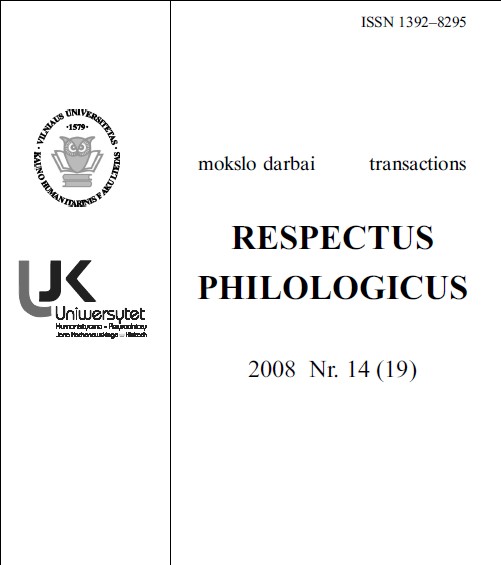POLITICAL LANGUAGE CORPUS AND ITS APPLICATIONS IN LANGUAGE TEACHING
POLITICAL LANGUAGE CORPUS AND ITS APPLICATIONS IN LANGUAGE TEACHING
Author(s): Gabriela Fernandez-DiazSubject(s): Language acquisition, Computational linguistics, Politics and communication
Published by: Vilniaus Universiteto Leidykla
Keywords: Corpus Linguistics; Political Discourse; Language Teaching;
Summary/Abstract: The main purpose of this paper is to build and exploit a corpus on political language in order to show the reader what kind of information can be gathered just by observing the use of the language in its context. We demonstrate how a corpus can be exploited for the acquisition of a specialised language, specifically, political language (PL). By using some basic processing tools in Corpus Linguistics, we analyse PL in the context of the European Union (EU). Firstly, we show how to compile a corpus from scratch. Secondly, we present the two corpora we have built for our research: a general reference corpus and a specialised corpus. The first corpus consists of approx. 500,000 words collected from the speeches of Javier Solana, the EU High Representative for the Common Foreign and Security Policy, whereas the second one consists of approx. 200,000 words on the topic of Human Rights. Thirdly, we process our corpora in order to examine the most distinctive features of PL vocabulary. Thus, we will analyse common political terms and expressions based on the following criteria: frequency of words, key words in context, word clusters, collocations, and concordances. Samples and data are collected and presented throughout the paper to support our analyses and hypotheses. Our final goal is to show teachers and language learners how to familiarise themselves with the terminology of present-day politics within the scope of the EU.
Journal: Respectus Philologicus
- Issue Year: 2008
- Issue No: 14 (19)
- Page Range: 46-57
- Page Count: 12
- Language: English

